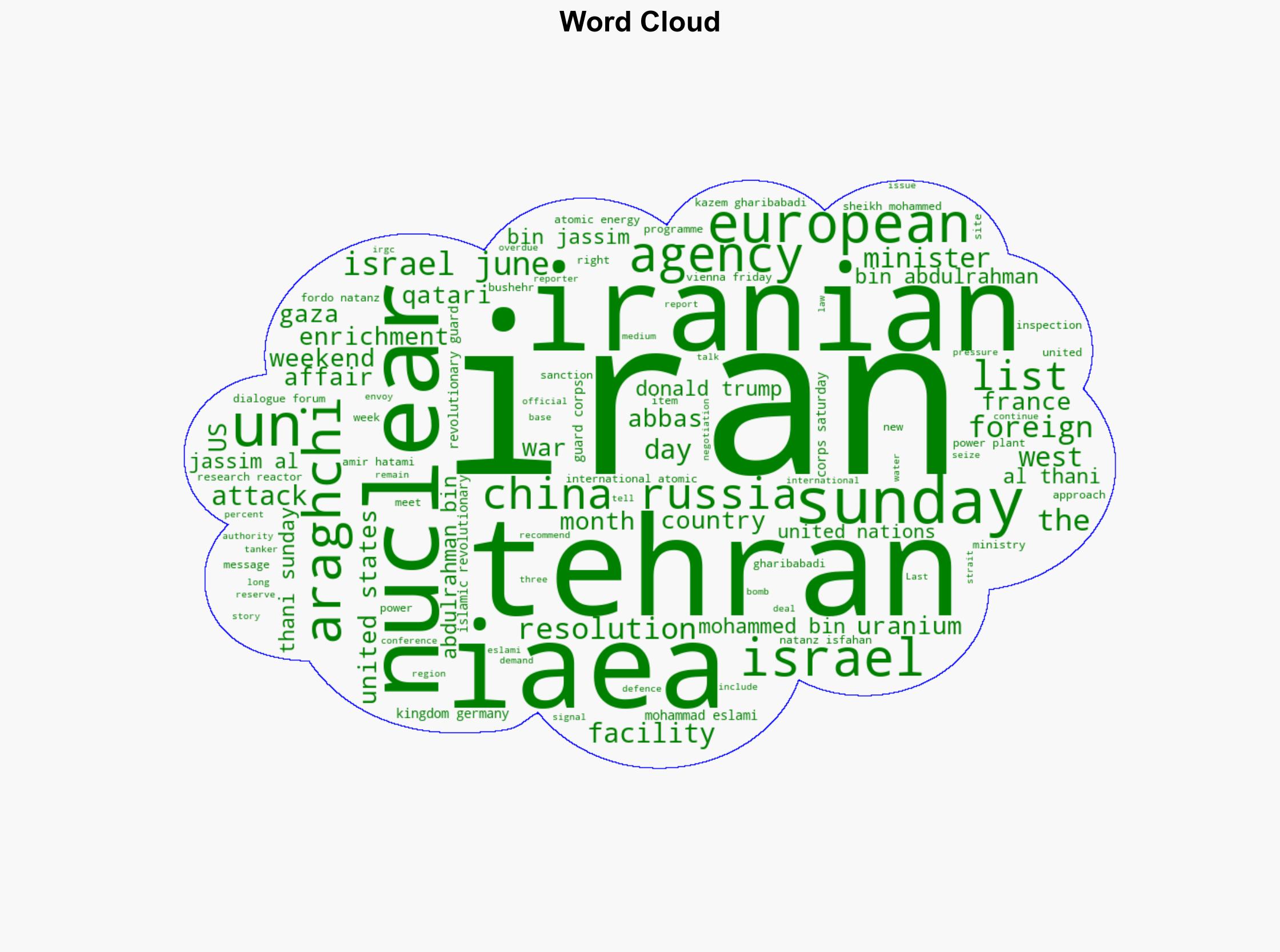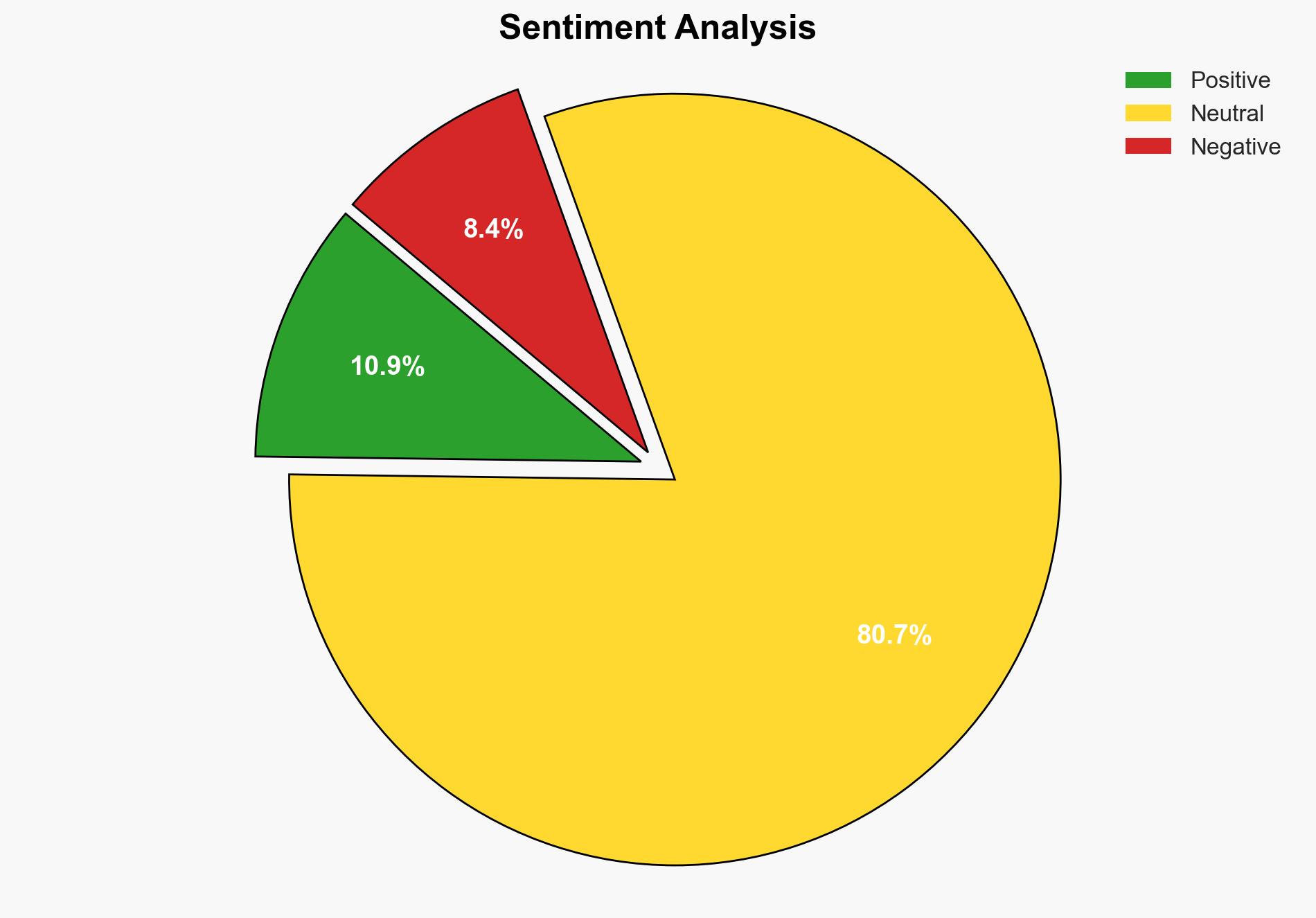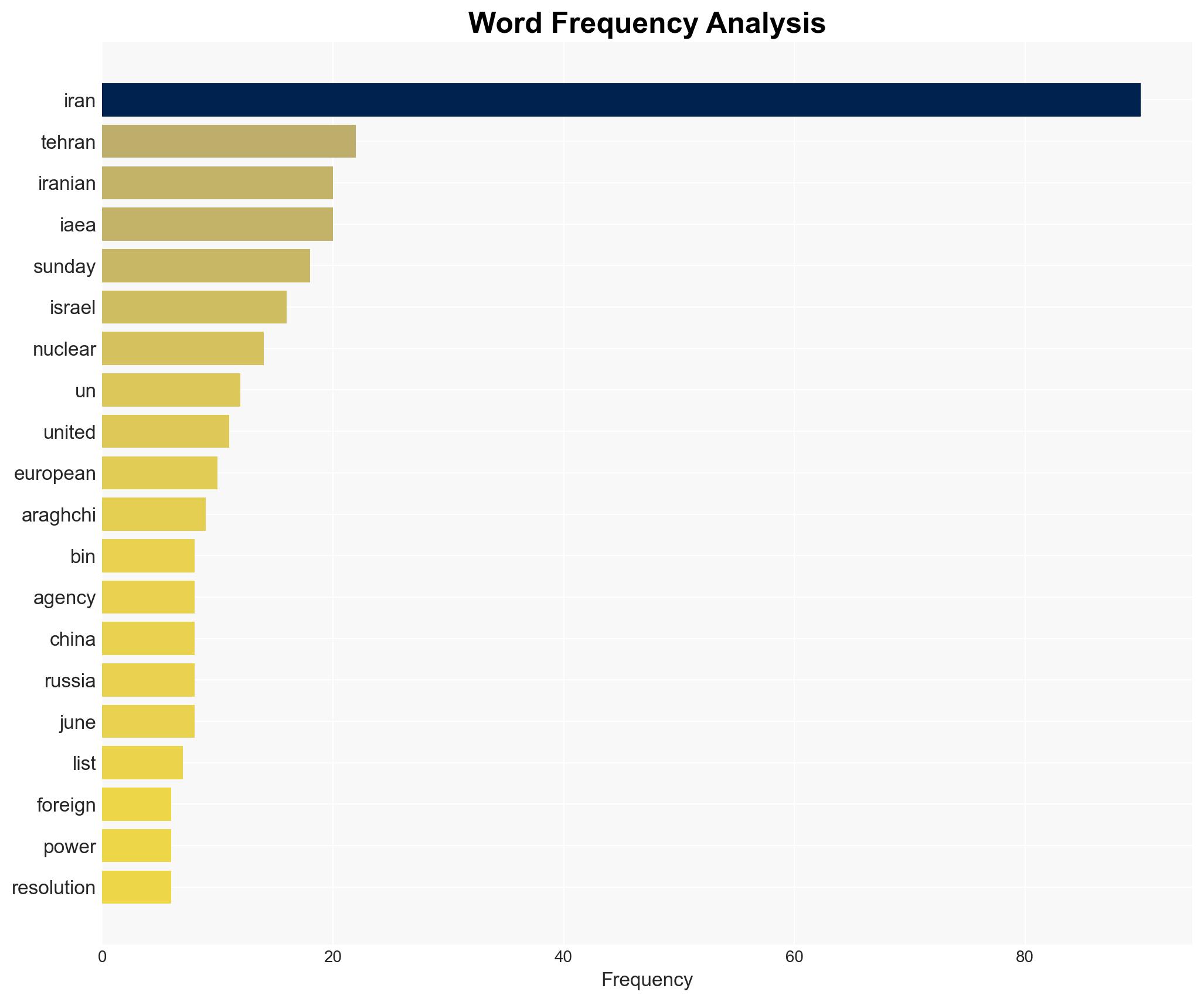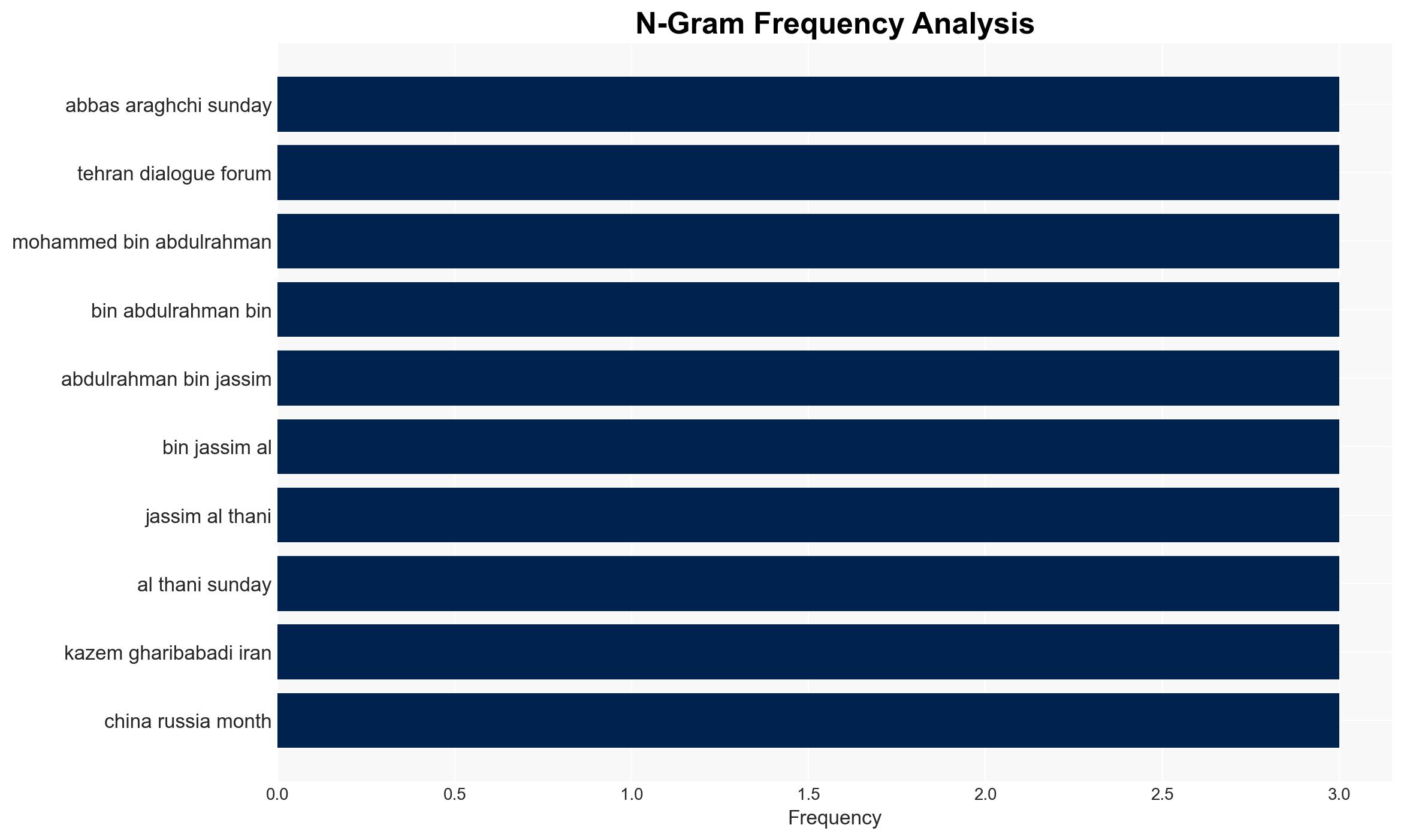Iran says no prospect of talks as West builds pressure over nuclear issue – Al Jazeera English
Published on: 2025-11-16
AI-powered OSINT brief from verified open sources. Automated NLP signal extraction with human verification. See our Methodology and Why WorldWideWatchers.
Intelligence Report:
1. BLUF (Bottom Line Up Front)
With a moderate confidence level, the most supported hypothesis is that Iran is leveraging its nuclear program as a strategic bargaining tool to counter Western pressure and maintain regional influence. Recommended actions include diplomatic engagement through intermediaries, enhancing intelligence collection on Iran’s nuclear activities, and preparing for potential escalation scenarios.
2. Competing Hypotheses
Hypothesis 1: Iran is using its nuclear program as a bargaining chip to gain leverage in negotiations with Western powers, aiming to alleviate sanctions and secure economic benefits. This is supported by Iran’s continued communication with international bodies and regional actors, despite public statements rejecting negotiations.
Hypothesis 2: Iran is genuinely committed to advancing its nuclear capabilities for strategic defense and regional dominance, with no intention of negotiating under current Western terms. This is indicated by Iran’s consistent enrichment activities and its framing of nuclear rights as non-negotiable.
Hypothesis 1 is more likely due to Iran’s historical pattern of using nuclear advancements as a negotiation tool and its engagement with international entities, suggesting a strategic rather than purely confrontational approach.
3. Key Assumptions and Red Flags
Assumptions: Iran’s statements are assumed to reflect strategic posturing rather than definitive policy. It is also assumed that Western powers are unified in their approach to Iran, which may not be the case.
Red Flags: Iran’s public rejection of negotiations could be a tactic to extract concessions. The lack of transparency in Iran’s nuclear activities and the potential for misinformation from both Iran and Western sources are significant concerns.
4. Implications and Strategic Risks
The primary risk is the potential for military escalation, particularly involving Israel, which has previously conducted strikes on Iranian facilities. Economic sanctions could further destabilize Iran, leading to regional instability. Cyber and informational warfare are also potential escalation vectors, with Iran possibly targeting Western interests in retaliation.
5. Recommendations and Outlook
- Engage in back-channel diplomacy through regional intermediaries like Qatar to facilitate dialogue.
- Enhance intelligence operations to monitor Iran’s nuclear activities and intentions.
- Prepare contingency plans for potential military or cyber escalation.
- Best-case scenario: Diplomatic breakthrough leading to renewed negotiations and easing of tensions.
- Worst-case scenario: Military conflict initiated by preemptive strikes or retaliatory actions.
- Most-likely scenario: Continued stalemate with periodic escalations and diplomatic overtures.
6. Key Individuals and Entities
Abbas Araghchi, Kazem Gharibabadi, Mohammad Eslami, Sheikh Mohammed bin Abdulrahman bin Jassim Al Thani.
7. Thematic Tags
Regional Focus, Middle East, Nuclear Proliferation, Diplomacy, Sanctions, Regional Stability
Structured Analytic Techniques Applied
- Causal Layered Analysis (CLA): Analyze events across surface happenings, systems, worldviews, and myths.
- Cross-Impact Simulation: Model ripple effects across neighboring states, conflicts, or economic dependencies.
- Scenario Generation: Explore divergent futures under varying assumptions to identify plausible paths.
Explore more:
Regional Focus Briefs ·
Daily Summary ·
Support us
·





